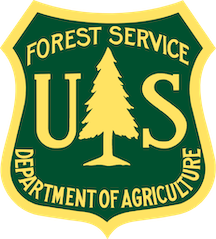 The U.S. Department of Agriculture’s Forest Service is awarding more than $1 billion in competitive grants to plant and maintain trees, combat extreme heat and climate change. The Forest Service selected 385 grant proposals from entities working to increase equitable access to trees and nature, and the benefits they provide for cooling city streets, improving air quality, and promoting food security, public health, and safety.
The U.S. Department of Agriculture’s Forest Service is awarding more than $1 billion in competitive grants to plant and maintain trees, combat extreme heat and climate change. The Forest Service selected 385 grant proposals from entities working to increase equitable access to trees and nature, and the benefits they provide for cooling city streets, improving air quality, and promoting food security, public health, and safety.
The vast majority of the grants were awarded to cities. But five historically Black universities were among the 385 grantees.
Norfolk State University
This project will enhance access to green spaces, provide employment opportunities, foster community engagement, and address resource equity. The project provides youth training, engages active participation from schools, seeks to uplift severely disadvantaged communities, promote longevity, reduce recidivism, and create a brighter, hopeful, greener future.
Southern University
This project will support an HBCU-led initiative to engage multiple community and faith-based organizations in planning and completion of community projects that enhance equitable access to tree canopies, parks, and nature, and improve workforce and leadership capacity in disadvantaged communities.
Jackson State University
This project will support an HBCU-led initiative to engage and employ community partners in the completion of projects that enhance equitable access to tree canopy, reduce stormwater runoff and maintain added public greenscape in disadvantaged communities.
South Carolina State University
Through the strategic partnership of counties, state agencies, and community organizations, South Carolina State University aims to revitalize green spaces and restore the region’s native tree diversity in disadvantaged communities across South Carolina. This project expands urban tree canopy and installs and maintains green infrastructure in SC communities to restore the region’s native tree diversity. The project will also establish, involve, and support multidisciplinary and multifaceted collaborative activities directed toward youth internships and empowerment, policy, practice, and community engagement.
Tennessee State University
This investment will restore the forested environment surrounding the Tennessee State University campus Tiger Bay Wetland. This wetland provides ecosystem services in an urbanized area of north Nashville and provides multiple educational opportunities for Tennessee State University students. TSU scientists and students will assist in the restoration of this forested wetland ecosystem, which will improve the ecosystem services that the wetland provides, along with experiential learning opportunities.

